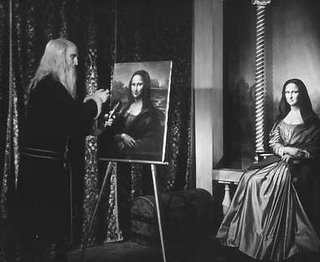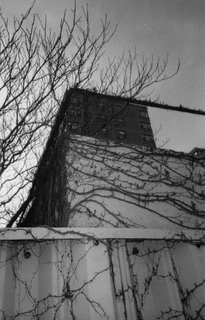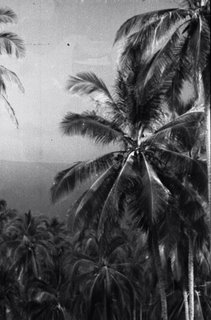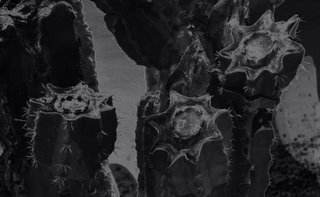awesome vikingo!!! light's on in the workshop. wrote some today, getting back into it after a nice break. m.c.s.i. l'a-ro

he slud into third*
“There is an ease to interpret liberty by its primary element—anonymity. Then democracy is the shared abstraction, that power can be both remote and representative. Narcissism is the psychological counter-weight. The individual seeks to be gratified by their intimate associations—the rest: an organized field of strangers, accounting for little more than the occasional interruption from mirror gazing; with the sacred becoming the clearest reflection.”
From “Journeys to the New World: Vol.3”, the compiled notebooks of the Veteran Josef Švejk of Tagaste.
David had worked for a short time as an X-Ray technician, with a nose habit; and slyly pilfered the pharmacy to support his obligations, including his twin daughters and Popsicle wife.
His father was born in 1933. His father, like son, had attempted to dodge the family calling. For awhile David’s father worked the line at Dodge Main and was taking a class on television repair. His father said, “The black and white’s were like radios with a few bells and whistles. But color, now that was a whole different ball game.” David’s father missed the first color class, and never caught-up. Years later, he made another try for television, but broadcasting. It was while operating the camera and learning to edit that he suffered a loss of sight. He’d gotten drunk, and vomited with such force it burst a blood vessel in his eye. He had to leave the profession. Bob was David’s father’s name; he spelled it the same backwards as forwards.
Bob’s father was born in 1900 and came to America in 1928—good timing, for a bootlegger. But his sister was the first to arrive, started cooking the booze. She found a farmer in Ohio willing to sponsor her brother in exchange for money. He tried to visit years later, to say thank you. But no one was there; were they ever? Either way, after Prohibition the sister married her brother’s father-in-law, his new partner in business, an enormous butcher; and when he died, the one family came to own the store (the first grocery store with shopping carts in Detroit). The sister and her new husband bought-out Bob’s father. The boys would be coming home from the war and needed a place to work.
Bob’s father opened a bar across the street in 1944, after V - E Day. People told him he was crazy, that after the war manufacturing would slow, belts would tighten. They laid a Japanese flag at the doorstep. People wiped their feet on it when they walked in. The building had been a corner bank that closed during the Depression. There was still a walk-in safe on the first floor and another on the second. And there was a basement window that opened so the kegs of beer could be rolled down a ramp.
When Bob’s father left the old country he had been responsible for taking the potatoes and plums to market with a horse and carriage. When he returned for a visit in his 67th year he wore a camera (a Kodak Dualflex IV)—that he did not know how to use. His family had the Soviet version. His shutter had gotten switched to “long”. Every photo was a blur. Bob’s father’s name was Anthony.
On a wicked day of autumn, when the ground could not refuse to swallow another corpse, a man slud into third, out by Meningitis. David went to the funeral. And that man’s dog died of heartache. David had stopped the x-rays and had gotten into real estate. He had his house built on a lake. And David believed he would never have to say he was sorry.
Then suddenly, David was sludding into third. They cut him out of his Q45. Television commented on the traffic jam, making reference to an injury accident. A helicopter swung overhead. The doctors asked the family for a photograph to rebuild his face. The most recent was from a fishing trip in Alberta, holding-up a Salmon. He was x-rayed. His technician was not pilfering the pharmacy, but working the clock and grumbled how, “it is always urgent”.
David lay in a hospital bed. He was heavily sedated; his family rushed towards him, while others were delegated to make phone calls. He had thoughts he would never remember. David drifted towards the old country. He said in his head, "grant me chastity and continence, but not yet", as the details overwhelmed him becoming un-recallable.
*said by Dizzy Dean, the baseball broadcaster--and braggart of the mound (that grave in the center of the diamond).
*it was Augustine who was born in Tagaste, not Švejk. And Augustine who said in hitting the snooze on waking from his carnal life, "grant me chastity and continence, but not yet”. Though, Švejk was a veteran of Tagaste, having fought there long before coming to what would become the Czech Republic and having his fateful adventures during the world war. Incidentally, Švejk was from Hippo.
: )
greetings from singularity
First, I do not believe an accurate statement about life (truth, insert any occasionally capitalized word used in pompous summary)—can be made using negation; nor by negation be understood. It simply is and in outrageous complexity; and the categorization of the infinite gets us no closer to comprehension—only action. Comprehension is not necessary for action, only sufficient inklings. And that is our purpose—action; as alive is our nature.
In making decisions we abstract information, which means the suppression of details. This is a tool for immediate employment, not long term analysis, which can afford the indulgence of detail.
This would then suggest that Plato’s forms, though not wrong, simply have been burdened with misapplication. And I believe we have the luxury of contemplation, bequeathed by the knowledge of death—the necessary component of consciousness.
Still it would follow that, our thinking would always remain rooted in the context of duality; hence purposeful thought—even as it comes to nothing and is bordered by nothing—is realized by being effectively contrary.
Contemplation then, or as above, a description of life, the world, Etc. would be most accurate when free from the threat of death—an obvious impossibility, unless we resort to fictions, what have been called essential fantasies—humanity, the afterlife. In the mean time we can pretend, by abandoning forms through the realization of distinctions.
Without abstraction the detail of every substance and feeling becomes its own singularity, confirms itself, and will never repeat.
But what happens to the observer in this activity? They too have become singular—in every distinction a burgeoning detail. It does not reduce by likeness--this rebellion absorbs every characteristic as being of equal merit.

But, we are governed by ease (not possibility)—survival’s cosmopolitan offspring--our old friend lazy. And this ease (yes, the will to power) adopts a creed: “Why plan when you can react?” Singularity watches from a distance and goes and gets a beer. The shit hit the fan. And no one saw it coming? Go figure.
We're lost except for love. And hints of love's most complete expression can be found in Timpano.
: )
gl hf dd kl*
David dropped a token into the game. You start with three lives. And can win more as you go along. His cigarette was burning in a previous rut in the plastic left of the joystick. His name (DVD) was already on the board, had been first through third. But IMCMN was breathing up on him from second. David needed to beat his best. But that had been an exceptional day. He’d always seen the spots, tiny microorganisms that would dwell on the edge of his perspective, visible in a partial squint. He began the day looking for them; as they lived, like in all eyes, resting in the moisture over the pupil—moving the eye does no good to see them, and was for David, a terribly difficult habit to break. But the days when he let his vision be still and range between the parasitic microbial level and the sky, all out of the corner of his eye, were always good days, days of accurate and spontaneous reflexes.
The game always started the same, introductory levels that have become predictable—a warm-up. He got his first extra life. In the pause he tried to puff on his cigarette which had burned-out. And he wished there was a game like this in the Casino up north, instead of hunters in orange and plaid, professionals. Here he paused the game and stretched. He walked out to the light of day through the black painted glass door. Six lanes of cars speed by, a half mile between lights. The sky was grey like recycled newsprint. He had his keys, his wallet. Maybe he’d try again tomorrow. He hadn’t felt up to the lead lately. David wrestled electronically. He unlocked his bicycle.
* good luck, have fun, don't die, kill lots
: )
the old country
The railroad runs between places, long lonely tracks through the wilderness. David waited in the station, the train long since on its way. They use narrower gauge track over there, and have to climb the mountains just before; with any snow the grade becomes too steep—engineering feat though it was in its day. Seemed to David like everything ran a bit slow over there, like they were maybe 10 years behind. David had gone into the railroad café in the afternoon. A pair of men in uniforms told him they couldn’t be sure when the train was going to come unless there was serious trouble and would be delayed for days. And when he tried to pay for his coffee the woman told over the bar that his money could not be accepted, that he must go to the change bureau at once. He asked if a bus continued on. She offered to change some money, but only small bills. There wasn’t a bus. But there was a taxi. David didn’t believe anything anyone said to him, not a word.

: )











